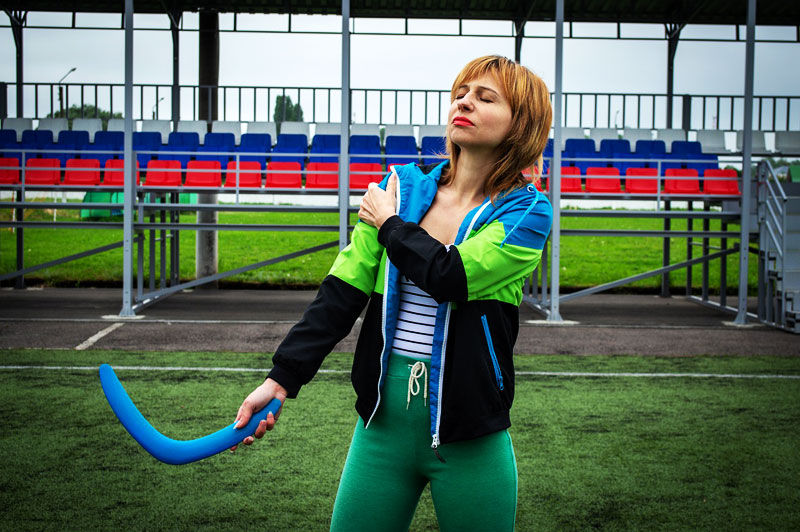 A muscular strain, pull, or tear refers to an injury to a muscle or its attached tendons. Muscles can be overstressed during typical everyday activities, such as abrupt heavy lifting, sports, or job responsibilities. Most muscle strains occur because the muscle has been stretched beyond its limits or has been pushed to contract too aggressively.
A muscular strain, pull, or tear refers to an injury to a muscle or its attached tendons. Muscles can be overstressed during typical everyday activities, such as abrupt heavy lifting, sports, or job responsibilities. Most muscle strains occur because the muscle has been stretched beyond its limits or has been pushed to contract too aggressively.
What Is Muscle Strain
Muscle strains are injuries to muscles or tendons, the fibrous tissue that links muscles to bones. Minor injuries may just cause a muscle or tendon to overstretch, but more serious injuries may cause partial or total rips in these tissues.
Muscle strains are the inevitable by-products of overuse, or stretching the limits of what is possible. They can also be caused by conditions such as muscle spasms, an abnormal psychological state, or an abnormal diet. Many conditions are treatable with rest or medications.
Only a few muscle fibers are stretched or ripped in moderate situations, and the muscle remains intact and powerful. However, in severe circumstances, the stretched muscle may be ripped and unable to function normally. Tears in the muscle can also injure tiny blood vessels, resulting in local bleeding or bruising as well as discomfort from stimulation of the nerve endings in the region.
Muscle Strain Symptoms
A torn muscle may feel somewhat tight but still pliable after a little strain. A significant muscular strain occurs when the muscle is ripped excessively. This causes discomfort and restricts mobility. Various symptoms are:
-Muscle soreness and tenderness, particularly after an action that stretches or contracts the muscle forcefully — Pain normally worsens when you move the muscle but goes away when you relax.
-A snap in the muscle at the time of muscle strain injury. It’s a feeling like something broke like a string is snapped.
-Swelling, bruising, redness, or discoloration as a result of the injury, or all of these symptoms.
-Muscle or tendon weakness or inability to utilize the muscle at all.
Muscle Strain Causes
Muscle strains can be avoided, for the most part, however, these do happen sometimes when a person doesn’t expect it at all. Muscle pull can happen over the simplest of situations, like bending to lift an object. It can also happen when you stretch your arm to itch your back.
The single most common cause is overuse of muscles which is caused by muscle fatigue and exertion. Sometimes lifting a heavy object, or a sharp pull or push can also trigger a muscle pull or strain. Sports persons can avoid muscle strain by stretching prior to beginning a sports activity.
It is best to gradually increase the intensity of a fitness program or exercise. Muscles become strong slowly, and it takes time to make a muscle group strong for intensive exercise or heavy loading.
Keeping a healthy body weight goes a long way in preventing muscle pulls. Obesity can cause muscular strain, particularly in the legs and back.
Muscle Strain Treatment
Muscle strain can be treated easily in most cases. Mild strains are treatable at home with rest and muscle creams. Consult a doctor if your symptoms increase despite therapy, particularly if your pain becomes unbearable or you feel numbness or tingling.
Rest, ice, compression, and elevation can be used to treat mild muscular strains. For a few days, avoid utilizing your muscle, especially if movement produces an increase in discomfort.
Apply ice immediately after damaging your muscle. This will reduce inflammation. Wrap ice in a towel or use an ice pack. Wrap the injured region with an elastic bandage until the swelling subsides. Take care not to wrap it too tight. This might impair blood circulation.
Horse Balsam For Muscle Pull
Horse balsam with its horse chestnut extract is known for its healing effect on muscles and muscular injuries. Horse balsam helps to soothe and relax muscles. It also decreases swelling and aids in faster recovery. Plus it is safe to use over the strain and smells nice too.
Conclusion
Muscle strain is a stretched or torn muscle. It is most cases are mild damage that gets repaired with proper rest. It severe cases, refer a doctor. Over-the-counter muscle creams, and painkillers aid in recovery and management of pain and swelling. It’s best to take precautions to avoid injuring muscles.

